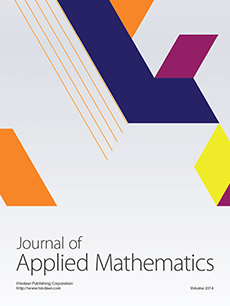Abstract
Human action recognition is an important area of human action recognition research. Focusing on the problem of self-occlusion in the field of human action recognition, a new adaptive occlusion state behavior recognition approach was presented based on Markov random field and probabilistic Latent Semantic Analysis (pLSA). Firstly, the Markov random field was used to represent the occlusion relationship between human body parts in terms an occlusion state variable by phase space obtained. Then, we proposed a hierarchical area variety model. Finally, we use the topic model of pLSA to recognize the human behavior. Experiments were performed on the KTH, Weizmann, and Humaneva dataset to test and evaluate the proposed method. The compared experiment results showed that what the proposed method can achieve was more effective than the compared methods.
Citation
Hong-bin Tu. Li-min Xia. Lun-zheng Tan. "Adaptive Self-Occlusion Behavior Recognition Based on pLSA." J. Appl. Math. 2013 (SI02) 1 - 9, 2013. https://doi.org/10.1155/2013/506752
Information





